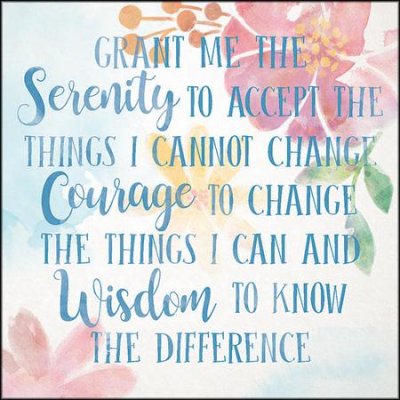This morning I was thinking about boundaries, and these questions: To what extent am I responsible for the happiness of others? Who is responsible for my own happiness? Then I went to Sunday School, and the main bible verse we studied was:
For that is what God is like. He is our God forever and ever,
and he will guide us until we die. Psalm 48:14 (NLT)
This verse and our discussion helped me to look deeper into who is really in control of our lives, our safety, our peace, our joy and our happiness.
One of the questions for the lesson was “where is a place where you have felt truly safe in the presence of God?” People had some great answers. The general consensus was that we can do whatever we feel we need to do to feel safe, i.e. lock the doors, watch where we walk at night, get a burglar alarm, buy insurance, etc. All of these things are great safety measures, but we know that things can still happen. We cannot stop a person intent on harm from busting our door down even if it is locked. We can wear a seat belt and drive the speed limit, but we cannot stop someone else from hitting us. So, at some point, after we have taken some common sense measures, we have to stop and remember who is ultimately in control: God.
I have been working in hospice and, as you can imagine, some of the people I work with are going through some very difficult times. Patients are facing the end of life; family members are facing the loss of a loved one, and caregivers are experiencing things such as exhaustion, hopelessness, and grief. One family member talked about a lot of things that had gone wrong in his life and wondered how he could find happiness if things keep going wrong. That’s a good question to ask. The answer is that we don’t find happiness when things are going right all of the time, we find joy in the small moments no matter what our circumstances may be. People who are happiest overall are people who know that it isn’t their circumstances that will bring them joy – circumstances can change in an instant. Instead, joy comes from experiencing those good moments and cherishing them during the good times and the bad.

The key word here, I believe, is control. We cannot control our circumstances, but we can control how we respond. We cannot control it when a loved one hurts us, gets sick, does drugs, decides that church is not for them, works at a job instead of a “promising career,” gets a divorce, marries someone we don’t like, or decides to run off and live off the grid. We cannot make a person love us. We cannot make a person change. We cannot make a person live the life that we think would be best for them. We cannot choose the person that someone would want to marry. We cannot control whether other people are happy. We cannot control how people respond when we do kind acts for them or when we decide to have boundaries and say no.
This does not mean that we should not help others. I am a social worker, after all. This is what I do. Jesus calls us to love the unlovable, to seek justice for the underdog, to feed the hungry and to comfort the grieving. But we cannot control how the recipient will respond. Provide help to others when it is appropriate to do so. When our helping works, we can rejoice. If it does not, sometimes we have to just let it go.

A guy in my Sunday school class said something that puts it all into perspective for me. He said that he sees himself as being in a play, and the people around him are characters in the same play. So, sometimes he has expectations that their actions will fit in with the plot of the play that he has written for himself. But the cast of characters in his play are in plays of their own. They are not answerable to our direction, they are answering to their directors. We can direct ourselves in our play, but our characters have plots of their own.

The key to happiness is to control what we can. Take precautions. Lock the door. Have a savings account. Go to college. Be kind and hope for kindness in return. Be generous and loving. But leave the rest to God. He is in control of everything that is out of our control. The same is true for expectations from others. Love them, be kind to them. But if they do not respond the way you want them to, decide what you can and cannot do about it, then love them anyway or move on.